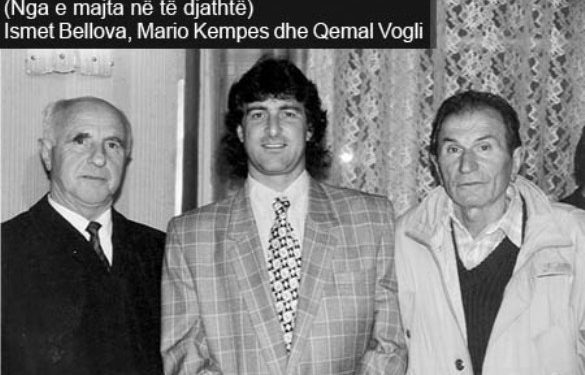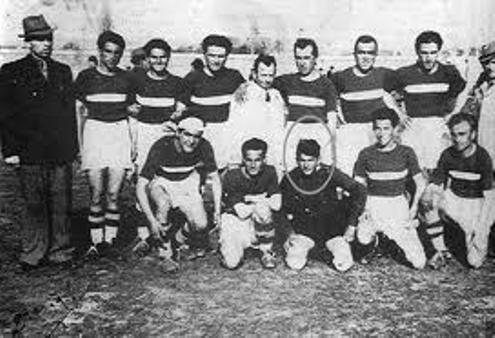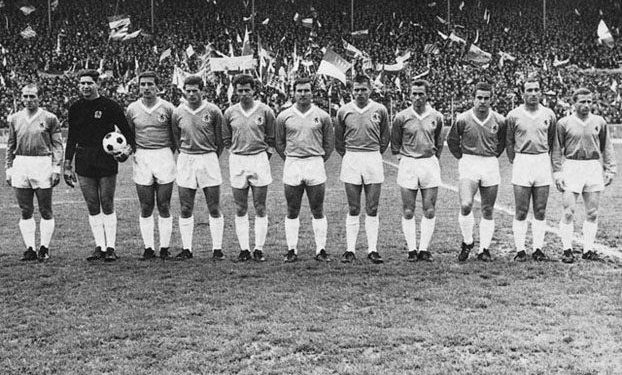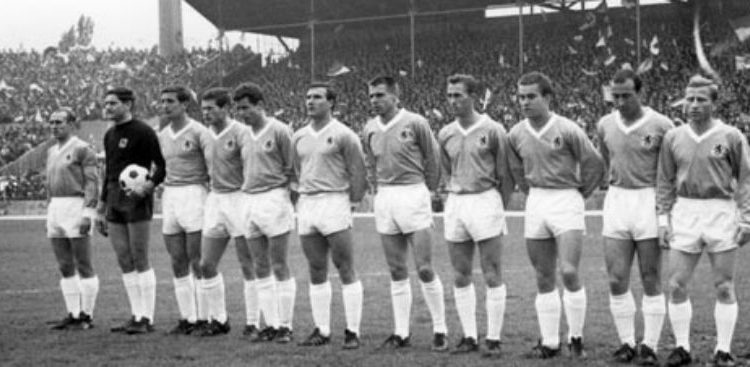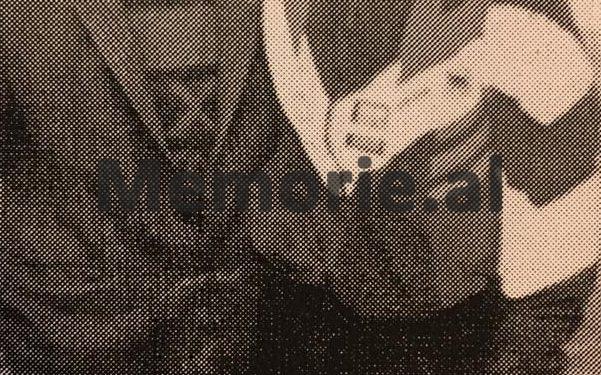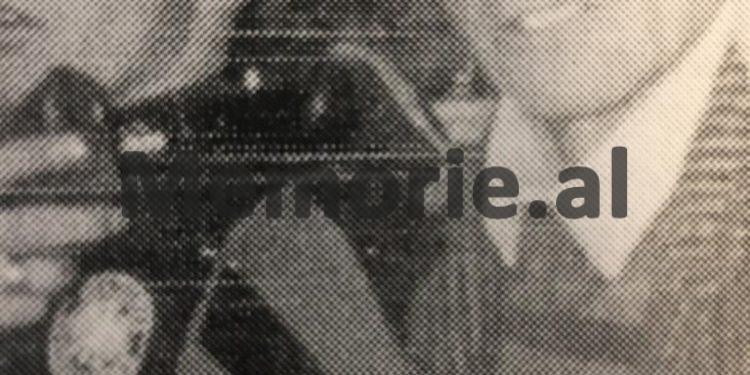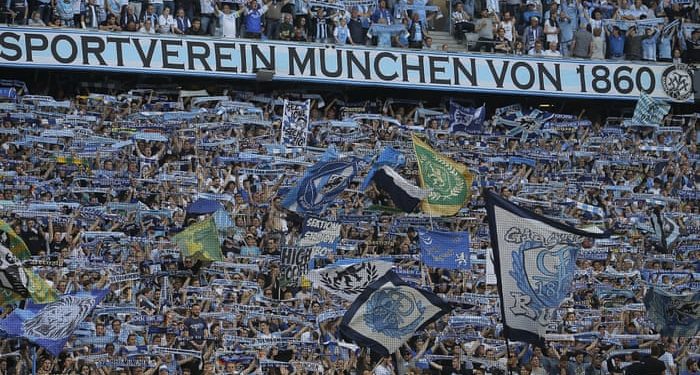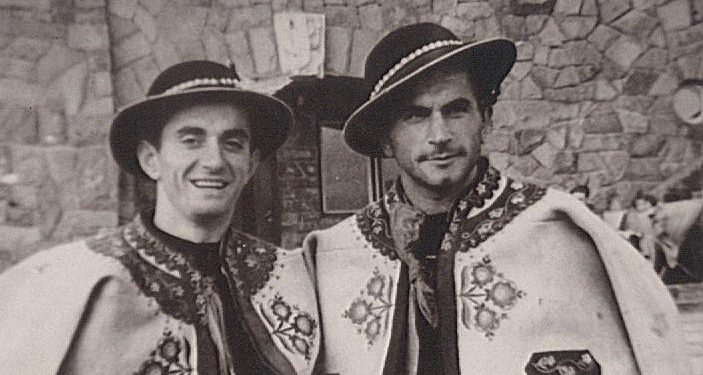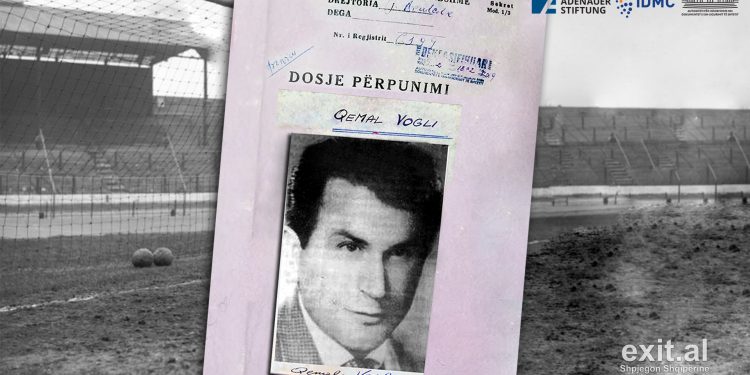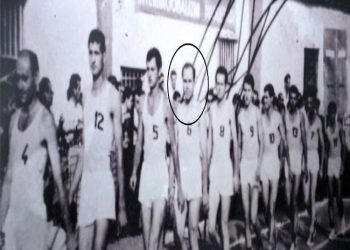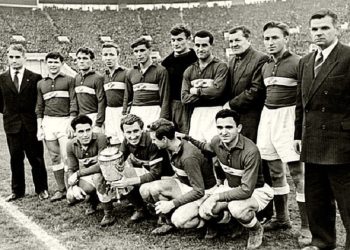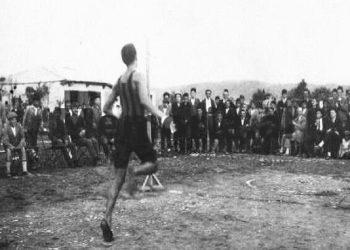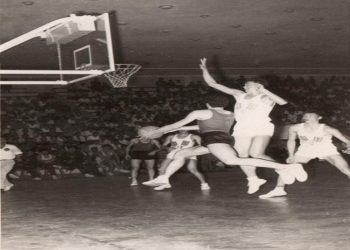Dashnor Kaloçi
Memorie.al publishes the untold story of Qemal Vogli, the famous goalkeeper of the Albanian national football team from Kavaja, who, after successfully deputizing with the team “Dinamo” of the capital, made an excellent appearance in many international meetings held in 50s red and black representative with some Central and Eastern European teams, such as Yugoslavia, Romania, Bulgaria, Poland, Hungary, Czechoslovakia, Soviet Union, etc., and during a football match of the year “Dinamo” 1956 in East Germany, seduced by Germans, escapes to West Germany. The whole sad story of Vogli, who dreamed of Italy of Lushta and Kryeziu and ended up in Tirana prison, sentenced to 17 years “for high treason against the homeland”. The tragic life of the Albanian gate legend who first crossed the “Berlin Wall” when he had not yet been built and was forced to work on drying the Thumana marsh, a welder in the Truck Park in Tirana.
It was the end of August 1956, when in the suburbs of East Berlin where the football team of Albania “Dinamo” was attached, some policemen with demanding dogs appeared. But what happened, why was the Berlin police alarmed and what were they looking for in the hotel rooms of the Albanian footballers? The wonder at the Albanian camp was extinguished when the team mate, a Colonel of the Ministry of Interior from Tirana, announced that he had disappeared from the hotel rooms, without any notice to team goalkeeper Qemal Vogli. But who was Qemal Vogli, who was his past, how he secured the Kavaii gate and then with the Teuta team of Durres and his brilliant career with the famous’ Dinamo ‘of the early’ 50s for him ending with the Albanian national football team where he excelled in many international meetings in the early 1950s? How did his escape from East Berlin happen in August 1956 when he was with the Dynamo team, and why did Vogli not want to tell us a word about that distant event that even changed his life and he never spoke alive? his for that thing? How did his teammates remember Vogli’s escape and what options they gave for the event that marked not only the end of his brilliant career as a gatekeeper, but also prison for six years and forced labor camps to dry up of Thumana swamps, Mamurras of Lac ?! For all this and more, the following scripture we know is based on the evidence we received years ago by the gate master Qemal Vogli himself, with the help of his close friend, Luigj Bytyci, one of the famous footballers of Great late 80s and early 70s.
The coincidence that put him in the gate
Qemal was born in 1929 in the town of Kavaja, where his passion was football, had been played there since the beginning of World War I, when an Austrian priest serving as chaplain to the Austro-Hungarian army brought the cannon. first in Albania. From a very young age, like all Kavaja children, Qemali began to play in the alleys of that city and then in the Zguraj neighborhood. In that field, soccer specialists Vasip Alushi, Demir Karriqi and Qemal Teliti, noticed the future talent in him and encouraged him to pursue the sport. When we met him for this writing, although he was in his 70s and with a life full of endless suffering and uncertainty, Qemal Vogli, a former celebrity goalkeeper for Dinamo and the Albanian national football team, had a brilliant memory. , recalled starting his football career in his hometown of Kavaja, recalling: “It was 1944, when the war was not over yet and the Besa Adult Team was preparing to play a training match with a team of Tirana. When it took a few minutes for the match to start, Kavaja goalkeeper Hamza Milku had not yet arrived. Alush Merhori, the talented Kavaja striker, ran from the middle of the pitch to start the game, running towards the empty gate where I was standing. ‘Kemal, he addressed me. ‘Get in the gate that you will become a good goalkeeper’. To be honest I was surprised because I had never played a goalie. With the youth team of our city, “Besa”, I played as a quarterback. However, I did not object and went into the gate where I played very well throughout the game and did not move on from there, ”Vogli recalls his first game as a goalkeeper.
From “Besa” to the National team
After the day that chance brought Qemal Voglin to guard the Besa gate, he became one of the most stable players in the Kavai lineup. So after the end of the War, in the end of 1945 in the city of Kavaja they competed for the National Championship, the local team with the “Vlaznina” of Shkodra. Although with the team of Shkodra at that time played Loro Boriçi, Pal Mirashi, Bimo Fakja etc, which later became the basis of the representative team of Albania, the match ended 0 0. Qemal Vogli that day his first match. official with the adult team, was notable for his excellent play. In 1947, Vogli and his family moved to the city of Durres, where for three years he defended the colors of the Teuta team with dignity. Regarding the years that Qemali played in the seaside town, he told us: “From that time on I remember the best memories, when the famous Skander Jareci and Tom Gjiri played in that team, up to Sotiraq Manushi, Sedat Ohri and Latif Fermia. In 1947, in Durres, we played with a team of English sailors and won 4 to 0. That match I had expected the first penalty of my life, ”Vogli recalled with nostalgia for the years when I was in Durres. After three years, in 1949, he was called to perform compulsory military service in Tirana, where he joined the “Dinamo” team, which was just being established by the Ministry of Interior that year. With “Dinamo”, Qemali played at the gate for six years, five of which she became champion, making excellent games and at the time he was considered one of the most popular athletes in Albania. Qemali played his first international match with the representative in 1947 in Tirana, when he was no more than 18 years old, where the national team won 2 to 0 with the representative of Bucharest. After that in the famous match of Belgrade in 1948, where the score was 0 to 0, the great Italian goalkeeper Giacomino Pozelli who defended the red and black colors of the Albanian representative, would appoint only Kemal Voglin as his deputy.
He excels at European meetings
In 1949 the Albanian football representative took a match tour of Europe and held his first meeting in Bucharest with the Romanian representative. That match ended in a 1-1 draw. It was one of Vogli’s most beautiful matches, where the Romanian sports press wrote in large letters: its wonderful attracted the attention of the public. ” From Romania the national football team went to Poland, where it met in Lodz with the Polish representative team, which won 1-0 with a goal by Qamil Teliti. Regarding this match, the Polish press wrote among other things: “The Albanian gate was an impassable barricade protected by a black man, (Qemali was dressed in black), which with his expectations became impassable.” After Poland, the Albanian team returned to Bulgaria to face the Bulgarian team in Sofia and the match ended without a goalless draw with a 0-0 draw. dot Voglin. After that tour of Europe, one of the most successful of the Albanian national team, in 1951, a representative team of Moscow landed at the Qemal Stafa Stadium in Tirana, where greats Simonian, Neto, Totoshin, Iliv Bashkashin etc. They could not break the Albanian gate protected by Vogli. This match ended in a 0-0 draw, with the Albanian goalkeeper shining as a great master. Also in 1951, at “Qemal Stafa”, went to Budapest “Vashash” team, one of the best Hungarian teams where some players of the national team played for a friendly meeting. This match was closed 3 to 1 for the Albanian team. About this match Vogli recalled: “That day I saw Anton Mazreku for the first time crying with joy.” The following year, in the “Qemal Stafa”, Albanians beat Poland 2-0. The Polish coach after the match in an interview with the People’s Sport newspaper said: “Vogli Gate was an impassable fortress.” After that, the Albanian representative held several other meetings in Tirana, where she won with Czechoslovakia 3-2 and Poland 2-0, while she tied 2-2 with Bulgaria. Even in these matches Vogli excelled with his game. In 1955 the Albanian national team made another friendly tournament in Poland, where they won with the Czech team in Poznan 2 with 0 and in Lodz with the Polish team with 3 with 0. After these successful matches, the Albanian team continued its tournament in Czech Republic where it defeated Prague. 3 to 2 Czech, where Vogli stunned local fans with spectacular anticipation. After these matches, the Albanians were sent to play in the town of Moravo-Stravo. In this city that could not be remembered to have won or drawn a foreign team, the Albanians tied 2-2 and the Czech sports press wrote: “We could not win because we could not defeat Voglin, the Albanian gate giant.”
Berlin 1956, the trap for Vogli
After the games played in the tournaments of Poland and Czech Republic, the Albanian national team continued its tournament in East Germany, where with a great game won the first match 3 to 1. Again in the Albanian team, one player was more than others about his play, which was also described by the German press. This was Qemal Vogli, the fantastic goalkeeper who the next day the local press described as the meeting’s hero. Deutsche Sport wrote three special pages for Vogli alone. In this connection, Qemali recalled: “Anton Mazreku, who accompanied us, left a copy of it in my hand and said to me: ‘Save and never lose this newspaper.’ The day after the victory, many Albanian students studying in Germany surrounded us and escorted us to hotel rooms. ” A few days later, something was going to happen, an unusual event for Albanian athletes by that time that would completely change the course of life for the talented footballer from Tirana. Suddenly, at the campsite where the Albanian team of “Dinamo” Vogli was stationed, the alarm went off. Interior Ministry officers accompanying the team reported that Qemal Vogli had disappeared and German police arrived with the odor-seeking dogs. But what had happened? Even today, after more than six decades of that distant day, no one knows exactly what happened to Qemal Vogli! He didn’t even want to talk about it. A secret he probably wanted to leave behind and to remain a “monopoly” of his memory. But Vogli’s story, however, was not completely forgotten. Some of his teammates remembered and told us some versions of that distant event, as they knew it, since Qemal himself had never spoken to that event. But all of their stories almost “beat” at some point about their teammate’s escape. According to them, when someone… maybe a female, offered Kemal the passage to the west of Berlin, where life was quite different. Although the invitation had a professional character, “Come play in West Germany”, the unknown man told him. And Germany, the country that had been announced two years ago as a world champion in Switzerland, could not but attract the talented Albanian goalkeeper who was only 25 years old at the height of his sporting career.
Invitation to activate “Munchen 1860”
In those days of August 1956, as Vogli waited alone on the outskirts of Berlin, a black Mercedes stopped at his feet. A handsome, well-dressed man got off the quiet car. He was president of the West German football club “Munchen 1860”, which at the time was one of the best teams in the country. “Herr Vogli goes sie fur unsere Manschaft spielen” he addressed without hesitation to the Albanian. His question was clear to Vogl. Do you want to play for our team? Surprised, of course, Vogli did not respond immediately to an unknown German friend. As he pondered the answer, the family in Tirana was in the know, wondering where he would end up in exile, if he answered: yes. While Kemal was left frozen after that offer and did not say a word, the unknown German insisted: “Here’s the salary you will receive, and the car you will have, the hotel is waiting for us to sign up, then you you will have your new home. ” Soon the black Mercedes slid on the highway to West Berlin, while Albanian Vogli shook the business card left by an unknown German friend. A few steps away from him a man was waiting to help him cross the border and escort him to the subway entrance. As he thought about the case, which would probably never come to life, he departed, and arrived hours later in the “promised world.” Upon arriving in West Berlin, Qemal did not stay there for a minute, but headed for Munich, where he was awaiting an unknown and attractive life. The beginning was not bad. He was placed in a luxurious room and immediately began training with the “Munchen 1860”. The club president himself, who had seduced him, took him in his car from the stadium to the hotel and vice versa. For three months, Vogli would live in paradise. But in his mind, paradise had a different name, Italy. The apennial peninsula, the place where his longtime friends Riza Lushta, Naim Kryeziu and Loro Boriçi had successfully played, had taken over the imagination of the famous Albanian goalkeeper and did not bother him.
Towards the Italian Dream
After some time, Vogli left Paradise where he lived in Munich and headed for Italy. At the Austro-Italian border, he was denied entry for lack of documents, and he was forced to stay in Austria. In those days in Vienna, the Hungarian national lunate, who knew the famous Albanian goalkeeper, immediately invited him to take him to Budapest. Qemal accepted and after a few days he found himself alone in the streets of Budapest. But already, quite concerned about the vicissitudes that had begun to follow. But he began to realize that far from home, not everything was easy. Another anxiety, too, began to plague him, as two unknown Albanians were making up his mind to return to Tirana. “Why don’t you come?” There you left your family, do you think what could happen to them ?! You’re a great goalkeeper and they have nothing to do. They will eventually be removed from Dinamo, which is a military team, but will play with Tirana. The insistence of strangers almost made Vogli mad. For days he struggled with how to act!
From Budapest to Tirana Prison 313
One afternoon in October 1956, a “Gas” of the Ministry of the Interior headed to the Port of Durres to wait for the ship coming from the port of Kostanca where, along with the crew, they were waiting for the much wanted person. As he came down to his land, Kemal Voglit was handcuffed. “On behalf of the people you are arrested,” he was told by some State Security civilians and immediately taken to the dungeons of the Tirana Prison (Prison 313). was sentenced to 16 years in prison “for high treason against the homeland.” Afterwards, he was sentenced to serve his sentence in the swampy camps of the Mamurras, Terbufi, and Laçi. six years after his conviction, after three amnesties granted to political prisoners at that time, Qemal Vogli came out of prison and began work as a welder at the Truck Park in Tirana. One of them was Beqir Balluku, then Minister of National Defense and a big fan of football, who intervened for Qemal, saying, “Let him play at least V He did not kill anyone. “But even though those words were uttered by one of the most powerful people of the communist regime in Albania, they seemed to be deaf to the ears, as Vogli’s fate had already been determined and no one could change. He would only care about broken trucks and any enterprise spartakiad, as the green football fields were already a “banned apple” for him and would only be a reminder of the past.




